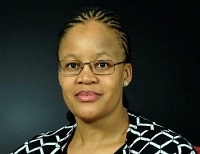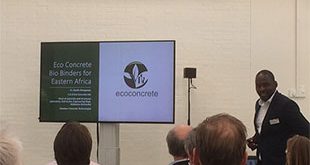
They could be a path to higher education in African countries but awareness is low
COMMENT | Mphoentle Puleng Modise | Sub-Saharan Africa is one of the largest regions in the world and has the lowest rates of participation in higher education anywhere in the world. The World Bank reported in 2020 that only 9.4% of the region’s tertiary education age group is enrolled. The global average ratio is 38%.
Education is a key catalyst of economic emancipation. Open and distance education was specifically designed for this purpose: to make higher education accessible to everyone, everywhere. Since it’s not limited to one campus or physical space, this approach empowers students to take full responsibility for their studies, to learn anywhere and at any time. Importantly, this happens with a higher education institution’s support and guidance.
One of the programmes commonly offered by such universities in other parts of the world is the Massive Open Online Course (MOOC). These are free, easily accessible and completely online courses with no entry requirements. In some developing countries outside Africa, such as the Philippines, Thailand and India, MOOCs are already being credited at the national level for entry into formal university education. This increases access to higher education.
MOOCs are relatively new in Africa; they have become more common in the past five or ten years. On paper they are ideal for many African contexts. Egyptian education researcher Ghada Refaat El Said writes that MOOCs can effectively alleviate “overcrowded classrooms, high costs of materials and books, commuting difficulty due to high traffic, and a need for continued education and specialised training for the workforce”.
But how exactly are MOOCs being used by African universities? Are any countries’ education systems effectively using MOOCs to widen higher education access? To find out, we analysed existing peer-reviewed research published between 2013 and 2020.
We found that not many African countries perceive MOOCs as tools for boosting higher education access. Where these courses are offered, they are usually supplementary or designed merely to give students extra tuition support. And there’s not much awareness of MOOCs among school teachers and learners, who then miss out on this potential alternative path into higher education.
What we found
We searched the Sabinet, Scopus and Web of Science databases for papers by African authors about MOOCs. This produced 99 papers. Our study was based on the 15 that were most relevant to our inclusion and exclusion criteria and that specifically addressed African issues around MOOCs.
A key finding was that MOOCs are mostly used as a self-learning element to support formal qualifications within African universities. In some cases, MOOCs involve face-to-face tuition and support for university students. However, this practice allows only a limited number of learners to access higher education. For the most part, it caters only to those who are already in the system.
The literature review also shows that most people from African countries taking these courses already possess some level of higher education. So, again, the existing education access divide is not addressed.
Some of the studies we reviewed found that many learners and teachers at high school level didn’t even know what MOOCs were because they had no access to digital spaces.
The literature suggests that a few countries in Africa – among them Nigeria, Egypt and South Africa – seem to have at least acknowledged the role that MOOCs might play in broadening higher education access. But this has not yet been translated into national policy.
Examples from elsewhere
We found that MOOCs are already being used as part of mainstream credit-bearing courses in some institutions in the Philippines, Thailand and India. That means completing a MOOC can count towards access to a university degree. It helps make the degree more affordable.
Another finding related to how MOOCs in some developing countries are being successfully packaged with recognition of prior learning programmes. This is a process through which informal learning can, with strict measurements and mediation, be certified – as the South African Qualifications Authority describes it – “against the requirements for credit, access, inclusion or advancement in the formal education and training system, or workplace”.
It is clear from these and other findings in our study that African governments, policy makers and education sectors could learn a great deal from other developing countries.
Going forward
Higher education institutions in African countries must initiate dialogue with governments and accreditation bodies on how MOOCs can be used innovatively to widen access to higher education.
Governments that aspire to widen access to higher education through MOOCs need to raise the awareness of every stakeholder, including school communities, educationists in higher education, policy makers and government stakeholders. It’s another way to provide African students with quality and relevant education.
******

Mphoentle Puleng Modise is Lecturer, University of South Africa
Source: The Conversation
 The Independent Uganda: You get the Truth we Pay the Price
The Independent Uganda: You get the Truth we Pay the Price




How can I join?
How can I apply
I wanna join, how can i
How can I join or apply
I would like to join am grateful to honor this opportunity
I want to apply
Thanks for the initiative and what is the procedure of joining.
Thanks